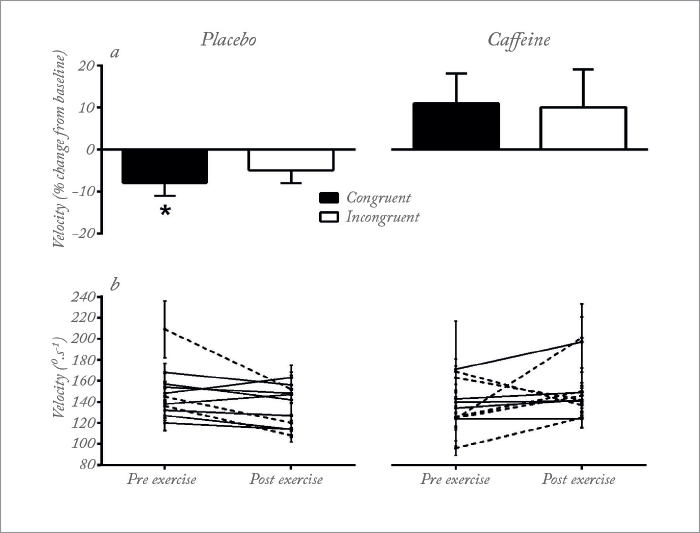
It isn’t surprising that your muscles feel tired after prolonged exercise. But your eyes? So it seems – that long gutbustin’ session at the gym can lead to an impairment in eye movements (1). Although central fatigue – a poorly understood phenomenon where impairments in central nervous transmission impair neural drive to muscles – is known to affect the skeletal muscle system after exercise, little is known about its impact on other motor systems that are not directly involved in locomotion and limb movement. Enter an international team of researchers, led by Nicholas Gant at the University of Auckland, who posited that exercise-induced central fatigue occurs in both the (functionally independent) locomotor and oculomotor systems (1). To investigate, they put 11 “well-trained” cyclists on stationary exercise bikes and made them cycle for three hours at 60 percent maximal aerobic capacity to induce central fatigue. Infrared oculography was used to measure the cyclists’ saccadic eye movements before and after exercise. Using double-blind, placebo-controlled, repeated measures, and a randomized cross over design, participants completed two experimental trials seven days apart: a placebo trial, where a carbohydrate solution was ingested every 15 minutes during exercise; and a caffeine trial, where caffeine (5 mg/kg body mass) was ingested at 90 minutes, in addition to the carbohydrate regimen.
Exercise-induced fatigue impaired oculomotor control was what they found. In the placebo trials, post-exercise saccade velocity was eight percent lower than baseline values (p<0.05). They also observed that caffeine counteracted fatigue-induced impairments in oculomotor function, with post-exercise saccade velocities being maintained at baseline levels in the caffeine trials (Figure 1). Proposing that fatiguing exercise provides sufficient inhibitory tone to disrupt average saccadic velocity, (possibly by affecting brain areas such as the superior colliculus, frontal eye fields, supplementary eye fields and the paramedian pontine reticular formation), the team suggest that caffeine’s protective effect on oculomotor function may be mediated through upregulated central neurotransmission. So, although the precise mechanisms of how remain to be answered, it seems, for now, that if you have tired eyes after exercise, have a coffee!
References
- CJW Connell et al., “Fatigue-related impairments in oculomotor control are prevented by caffeine”, Sci Rep, 6, 26614 (2016). PMID: 27222342.
